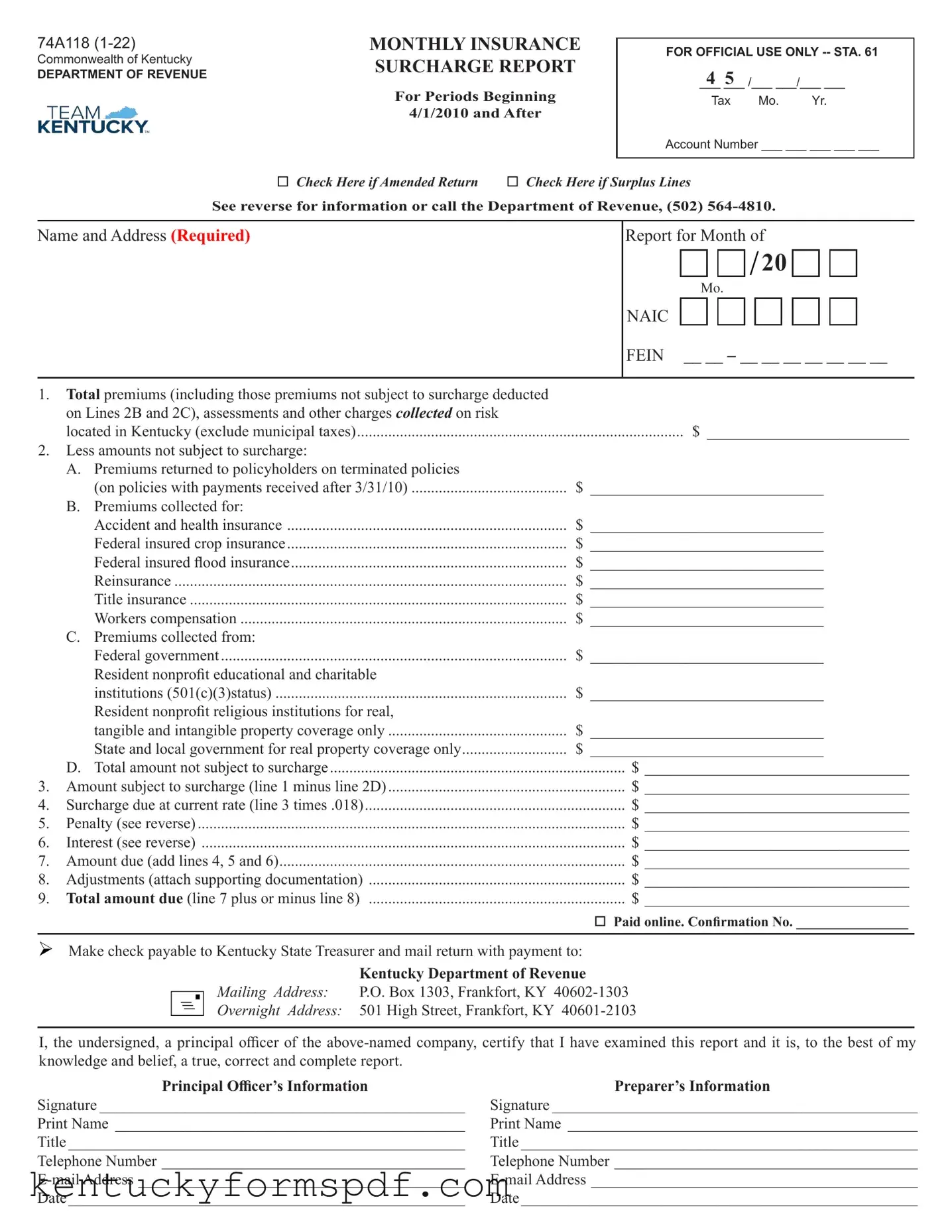What is the Kentucky 74A118 form?
The Kentucky 74A118 form is a Monthly Insurance Surcharge Report required by the Commonwealth of Kentucky's Department of Revenue. It is used by insurers to report and remit the insurance premium surcharge collected on premiums, assessments, and other charges for risks located in Kentucky. This form must be submitted for each reporting period, even if no premiums were collected.
Who needs to file the 74A118 form?
Every domestic, foreign, and alien insurer, except for life and health insurers, must file the 74A118 form. This includes insurers that are subject to or exempt from Kentucky insurance premiums taxes. It is essential for all applicable insurers to report their surcharge collections, regardless of whether they collected premiums during the reporting period.
What information is required on the form?
The form requires details such as total premiums collected, amounts not subject to surcharge, and the calculation of the surcharge due. Insurers must provide their account number, the reporting month, and the total amount due. Additionally, the form must include the signatures and contact information of the principal officer and the preparer.
What are the penalties for late filing or payment?
Failure to file the 74A118 form by the due date incurs a penalty of 2 percent of the surcharge due for each 30 days or fraction thereof that the report is late, with a maximum penalty of 20 percent and a minimum of $10. Similarly, late payments are subject to the same penalties. Interest will also be applied to any unpaid surcharge liabilities from the original due date until payment is made.
What types of policyholders are exempt from the surcharge?
Exemptions from the insurance premium surcharge apply to the federal government, resident educational and charitable institutions with 501(c)(3) status, resident nonprofit religious institutions for certain property coverage, and state and local governments for real property coverage. Other exemptions include premiums received for life and health insurance, municipal premium taxes, and specific types of insurance like workers’ compensation.
How should payments be submitted?
Payments for the surcharge should be made payable to the Kentucky State Treasurer. Insurers must mail the completed form along with the payment to the Kentucky Department of Revenue at the specified mailing address. For those who prefer, online payment options are also available, and a confirmation number must be recorded on the form.
What should be done if a refund is needed?
Refunds or credits can only be claimed for premiums returned to policyholders on terminated policies. To request a refund, insurers must submit a written request. It is important to note that refunds cannot be claimed for exempt premiums, such as those related to workers’ compensation insurance.

